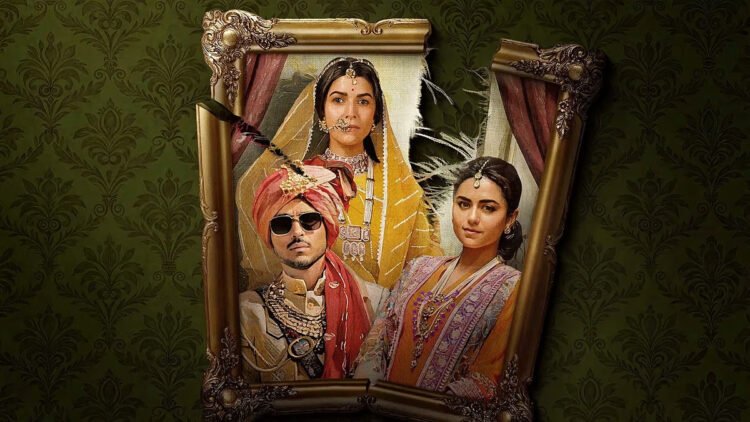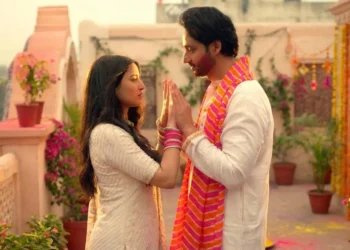Kull: The Legacy of the Raisingghs streaming on JioHotstar is a briskly paced series that strives to captivate viewers with its relentless stream of events, but this ambition sometimes causes it to stray off course. In its desire to present an engaging narrative, the show occasionally sacrifices logic. Nevertheless, if you can overlook the finer details, the drama possesses its own charm. Set against the backdrop of the fictional royal family of Bikaner, the plot revolves around a former king, his two daughters, and his son. The show’s swift tempo allows for some implausible moments to infiltrate the storyline. The characters are predominantly flawed, with few, if any, emerging as genuinely admirable. The essence of ‘Kull’ lies in its complex relationships: sibling rivalries, the father-son tension, and the strife between legitimate and illegitimate heirs. For those who remain attentive, there is enough intrigue to engage viewers, provided they disregard the imperfections.
Story
The storyline focuses on Chandra Pratap Raisinggh (Rahul Vohra), the aging Maharaja of Bikaner, who is currently battling Alzheimer’s. His children—Indrani (Nimrat Kaur), Kavya (Ridhi Dogra), and Abhimanyu (Amol Parashar)—share a strained relationship with him, while Brij (Gaurav Arora), his illegitimate son, has a unique bond with him. Indrani, the eldest and more composed daughter, is married to Vikram (Suhaas Ahuja), the son of the chief minister. Abhimanyu, the youngest, is impulsive and self-indulgent, whereas Kavya is practical and seeks to lease the palace to alleviate the family’s financial woes. The Maharaja announces a significant revelation for his 60th birthday, but he is discovered dead in the swimming pool the following morning, his body showing suspicious injuries. This unexpected demise throws the family into chaos and shifts the dynamics among relatives and family members.
Performances
One of Kull’s notable strengths is its performances. Nimrat Kaur portrays the royal daughter-in-law with quiet conviction, maintaining restraint for much of the series before finally revealing her emotions in the concluding episodes. Ridhi Dogra as Kavya, the middle child educated at Oxford, delivers a solid and consistent performance, with her clashes with Abhimanyu being some of the more gripping moments of the show. Amol Parashar stands out as the reckless prince, his performance eliciting little sympathy yet commanding attention. Although his portrayal fits the character’s excesses well, a bit more restraint at times could have better served the role. Rahul Vohra, as the ailing patriarch, conveys both presence and vulnerability that align well with his character.
Final Analysis
Based on a story by Althea Kaushal and Tarana Raja, written by Kaushal and directed by Sahir Raza, Kull is a series that starts strongly, loses its momentum in the middle, yet manages to regain some traction towards the end, leaving room for the possibility of a second season. What unfolds is a depiction of a disjointed family where everyone has personal interests at stake. However, the show falters in maintaining its initial momentum. Some plot developments feel overblown, such as the chief minister being depicted as a murderer or Abhimanyu casually using drugs in front of his sister, whom he regards as a maternal figure. These aspects strain believability and dilute the story’s emotional impact. A more measured storytelling approach could have enhanced the series’ effectiveness. As the plot continues, it takes on a whodunit style—first concerning the Maharaja’s demise and later regarding a subplot about missing election funds.
Gaurav Arora’s Brij emerges as the most compelling character, despite inconsistent writing. Initially a peripheral figure, he becomes central as the series progresses. Another curious aspect is Indrani’s steadfast loyalty to her brother, despite his flaws—a dynamic that lacks sufficient backstory or depth. The show concludes with several unresolved questions. Nonetheless, Kull remains an engaging drama. With its mix of royalty, politics, and murder, it can hold viewers’ attention if they are willing to overlook its shortcomings. Though not always refined, it offers an entertaining, if uneven, experience.






















